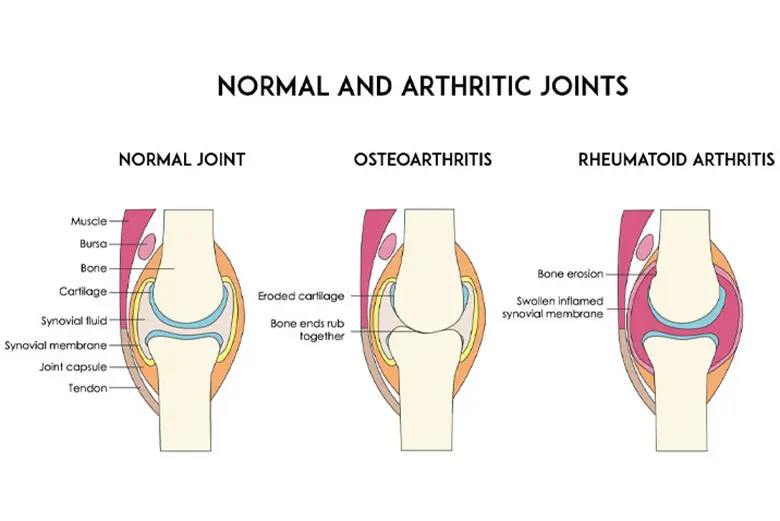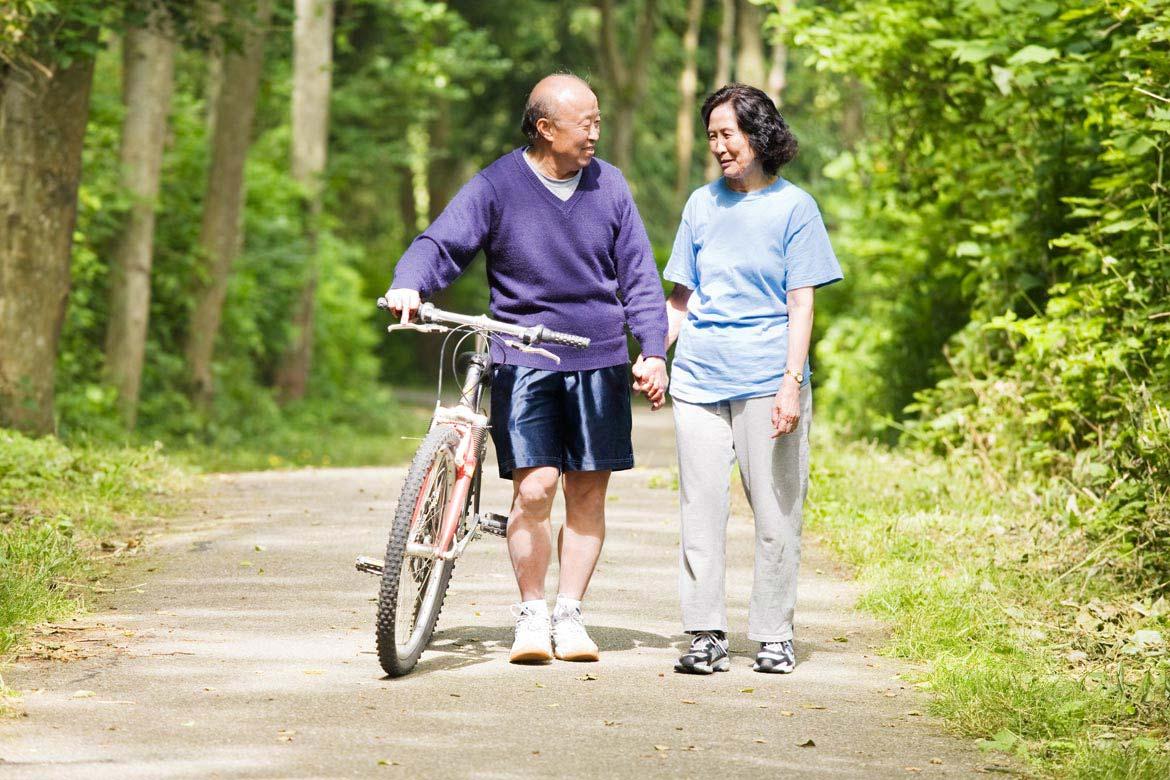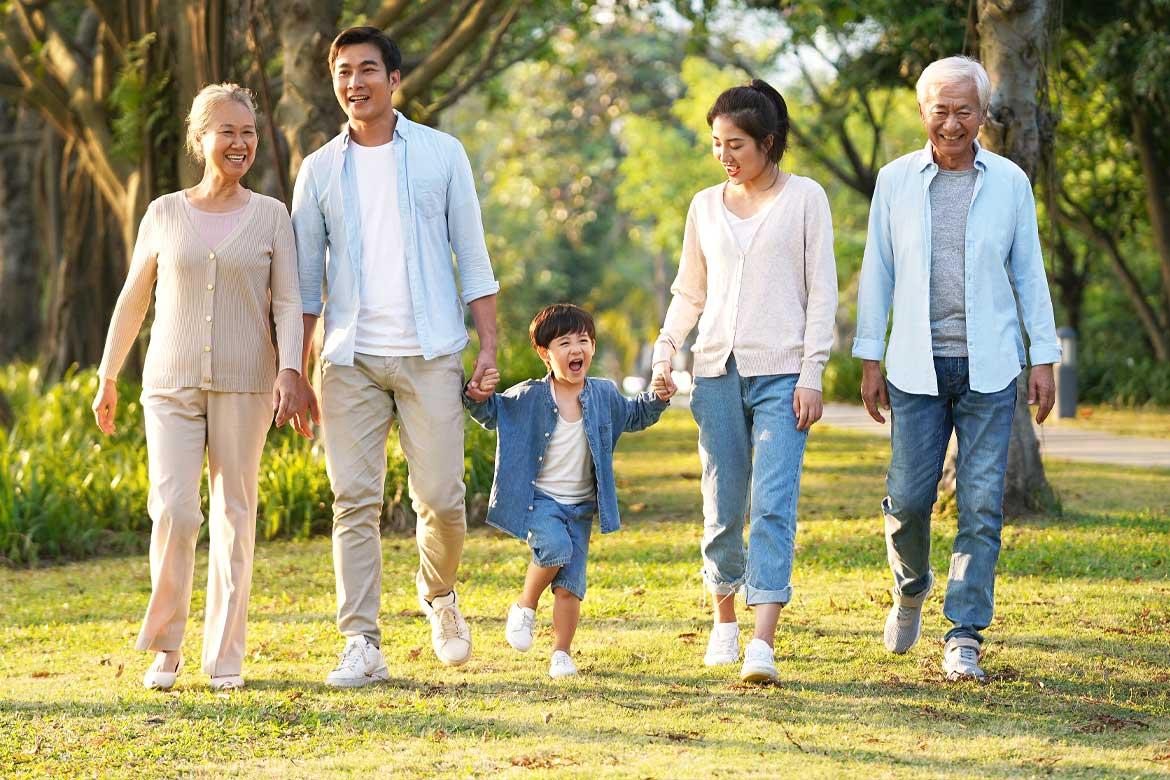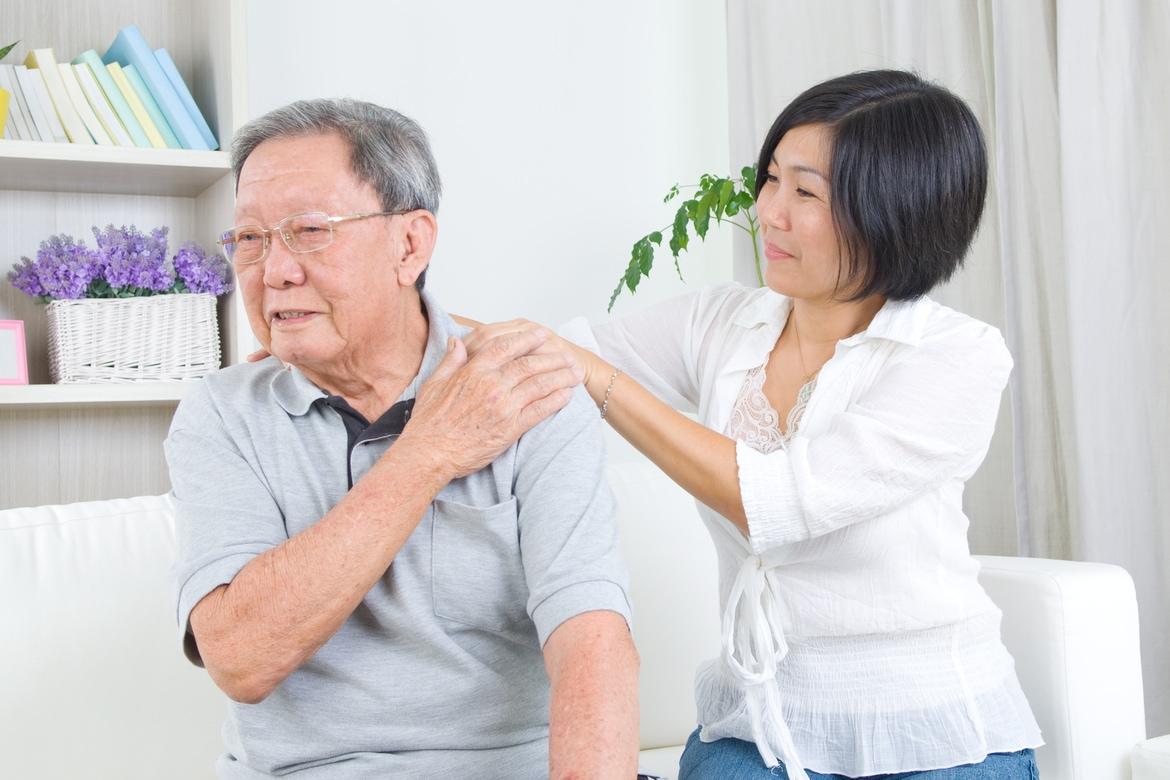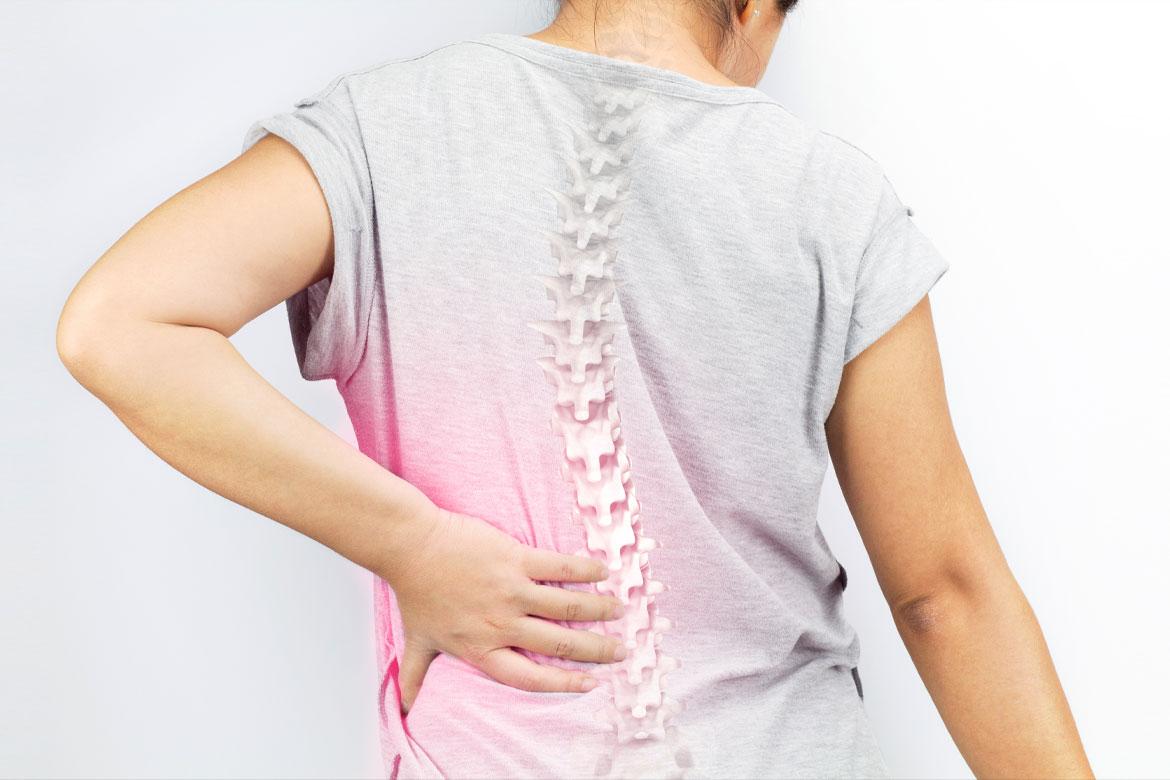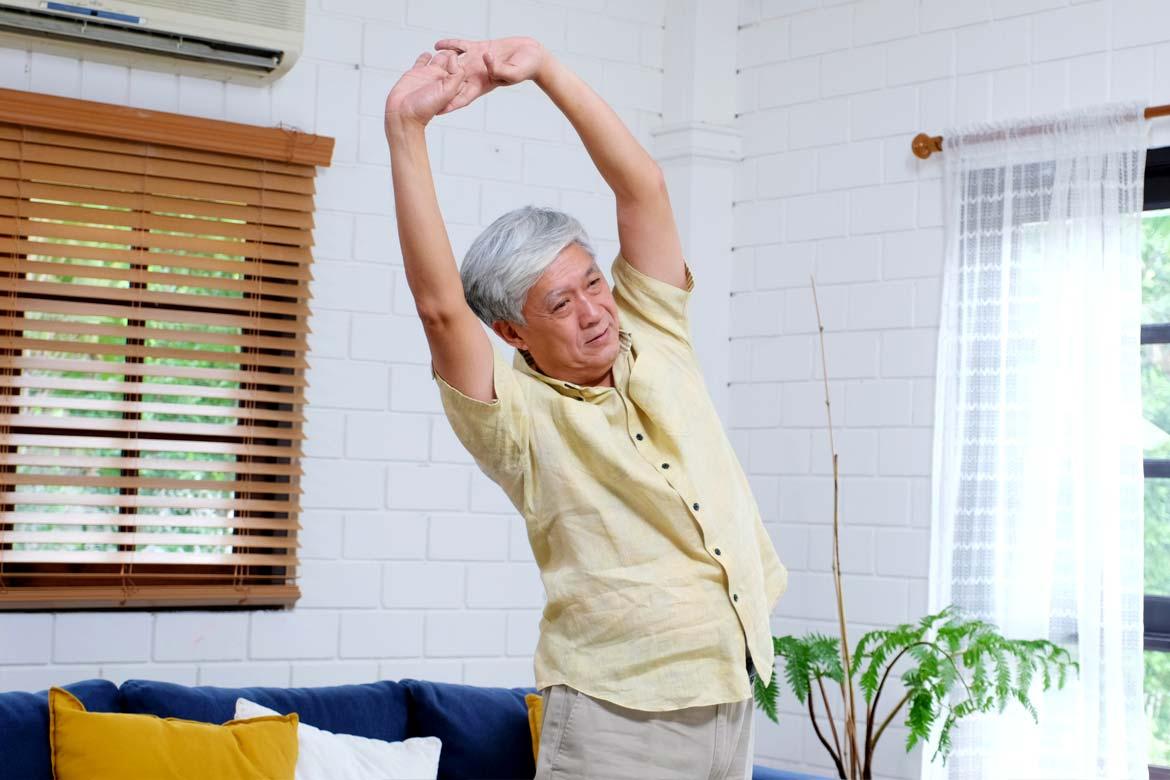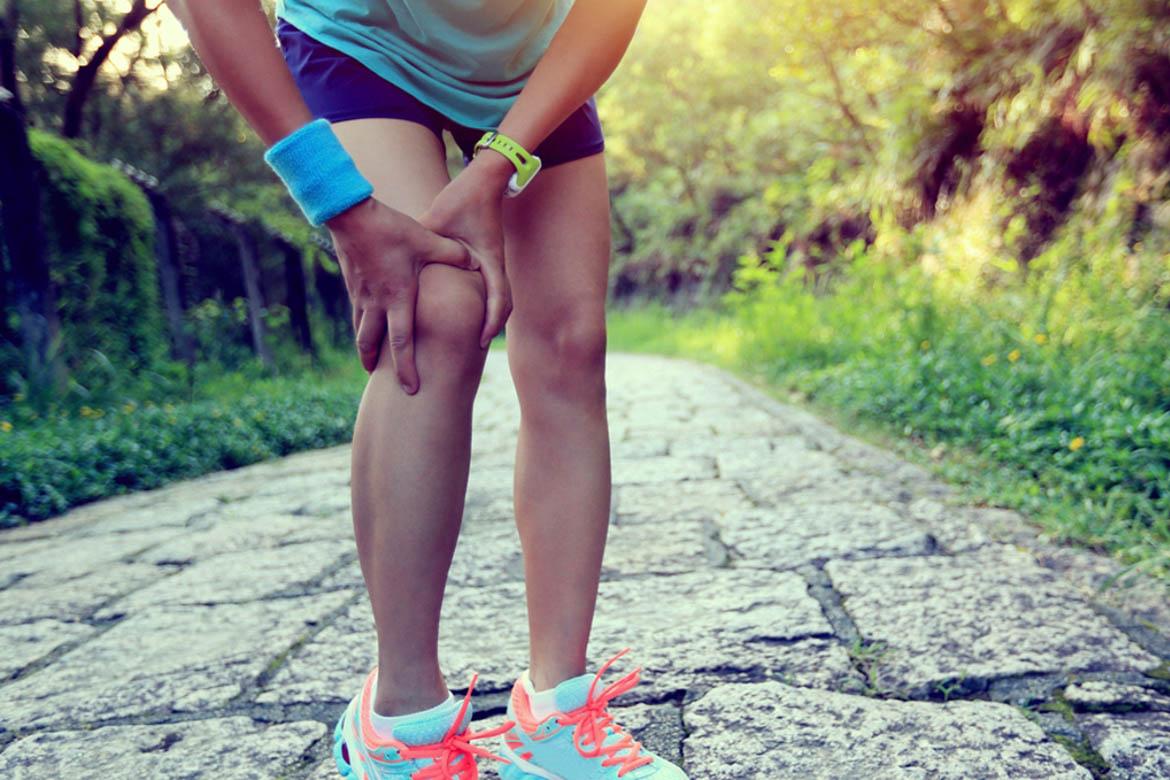
Arthritis
What is arthritis?
Arthritis refers to the inflammation of the joints, which causes pain and swelling. It can occur in both small joints (e.g. fingers) and large joints (e.g. hip or knee). The joints can become stiff or deformed, resulting in increased disability or decreased mobility.
Types of arthritis
There are 2 types of arthritis:
Osteoarthritis
Osteoarthritis is the most common form of arthritis. It is also called "wear-and-tear" in joints where the cartilage within a joint starts to wear out. This causes the bones to rub against each other and the joints to become painful, stiff or swollen. This condition usually affects the hands, hips, knees, neck and lower back.
Rheumatoid arthritis
Also known as gout or inflammatory arthritis, is an autoimmune and chronic inflammatory disorder. It occurs when the immune system wrongly attacks the body's healthy cells, leading to inflammation of the affected body part. Rheumatoid arthritis can affect your joints and other body parts such as blood vessels, eyes, mouth, heart, lungs, and skin.
What are the symptoms of arthritis?
If you have osteoarthritis, it worsens as the day progresses. By evening, you are likely to feel a dull ache in the affected joint.
Other symptoms of arthritis include:
- Pain
- Stiffness of the affected joints
- Swelling in the affected joints
- Changes in surrounding joints
- Cysts (lumps) in the hand that may cause ridging or dents in the nail plate of the affected finger
- A sensation of grating or grinding in the affected joint caused by rubbing of the damaged cartilage surface (called crepitation)
- Warmth, as the joint may feel warm to the touch
What causes arthritis?
In osteoarthritis, the cartilage, or the connective tissue that protects the joints, breaks down due to the overuse of the affected joint. This is usually due to ageing, but can also happen to young people as a result of past sports injuries, such as dislocation of the shoulder or knee.
In rheumatoid arthritis, the immune system attacks the body instead of protecting it, causing the joints to swell.
What are the risk factors for arthritis?
The risk factors for arthritis include:
Occupations that require repetitive physical movements such as kneeling, lifting and climbing stairs.
Age. Although osteoarthritis can happen at any age, it is most prevalent in people in their 50s. The disease begins gradually and worsens over time. Rheumatoid arthritis is also more common in middle-aged people.
Gender. Osteoarthritis affects more women than men.
Genetics or family history
Being overweight or obese
Lack of physical activities
Poor posture
Past injuries
Infection
Smoking
What are the complications and related diseases of arthritis?
Rheumatoid arthritis can affect many organs in the body. It is important to seek treatment early to prevent complications such as:
- Anaemia (low levels of red blood cells or haemoglobin in the blood)
- Fibrosis (thickening and scarring) of the lung(s)
- Heart attacks and strokes
- Some cancers
This coverage checker is brought to you by Health Insured, an online resource that helps you understand your health coverage in Singapore.
This page has been reviewed by our medical content reviewers.
Need help?
For enquiries, please call
+65 6250 0000 (Orchard) or +65 6898 6898 (Novena)
For appointment bookings, please WhatsApp
+65 8111 7777 (Orchard) or +65 8111 5777 (Novena)
 Brain & Spine Care
Brain & Spine Care